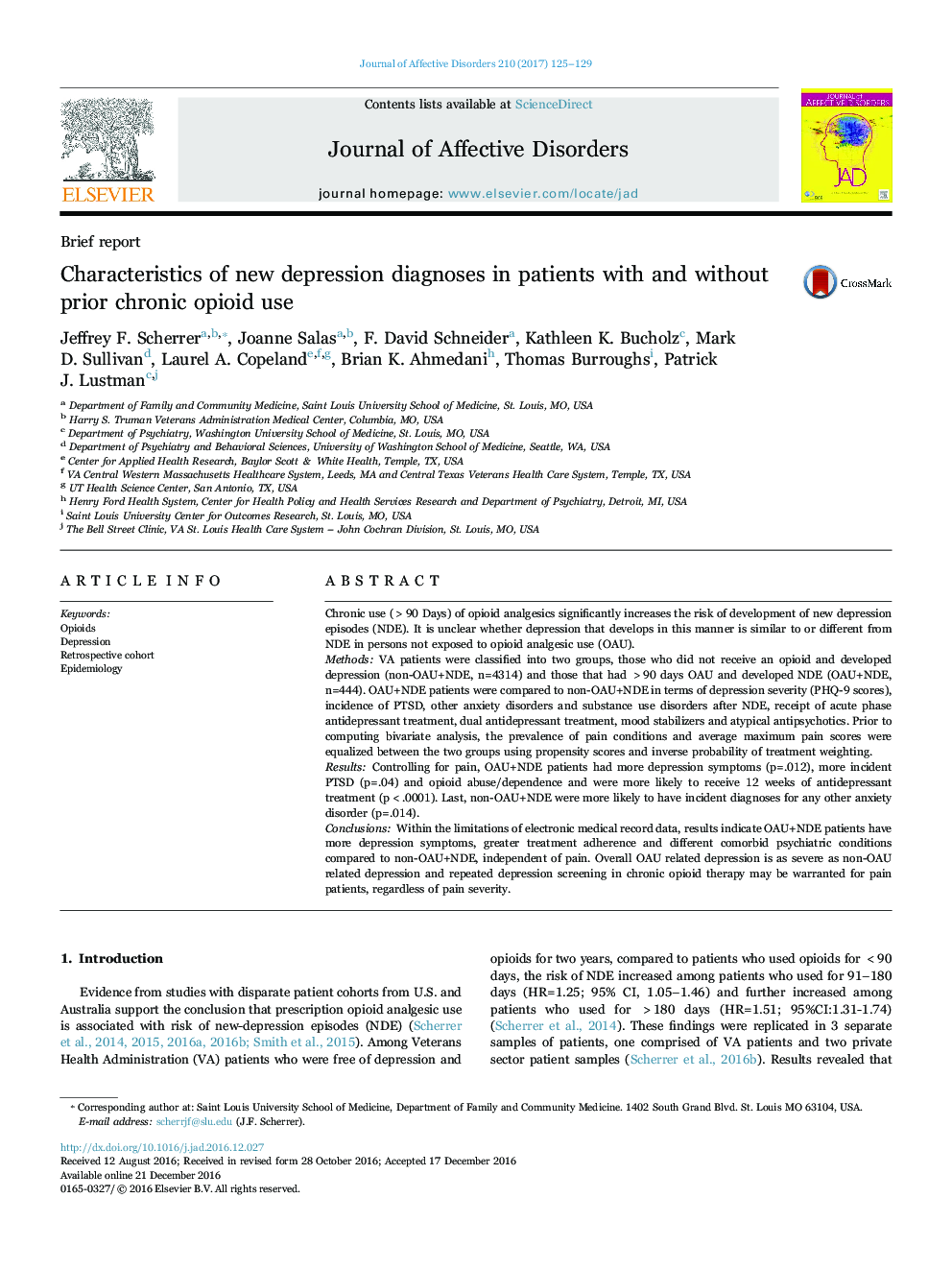| Article ID | Journal | Published Year | Pages | File Type |
|---|---|---|---|---|
| 5722382 | Journal of Affective Disorders | 2017 | 5 Pages |
â¢Chronic prescription opioid use is associated with new depression episodes.â¢Depression following opioid use characterized by more depression symptoms.â¢Depression after >90 day opioid use compared to depression in non-opioid users.â¢12 week antidepressant treatment more common in depression after opioid use.â¢Depression following opioid use characterized by more comorbid PTSD.
Chronic use (>90 Days) of opioid analgesics significantly increases the risk of development of new depression episodes (NDE). It is unclear whether depression that develops in this manner is similar to or different from NDE in persons not exposed to opioid analgesic use (OAU).MethodsVA patients were classified into two groups, those who did not receive an opioid and developed depression (non-OAU+NDE, n=4314) and those that had >90 days OAU and developed NDE (OAU+NDE, n=444). OAU+NDE patients were compared to non-OAU+NDE in terms of depression severity (PHQ-9 scores), incidence of PTSD, other anxiety disorders and substance use disorders after NDE, receipt of acute phase antidepressant treatment, dual antidepressant treatment, mood stabilizers and atypical antipsychotics. Prior to computing bivariate analysis, the prevalence of pain conditions and average maximum pain scores were equalized between the two groups using propensity scores and inverse probability of treatment weighting.ResultsControlling for pain, OAU+NDE patients had more depression symptoms (p=.012), more incident PTSD (p=.04) and opioid abuse/dependence and were more likely to receive 12 weeks of antidepressant treatment (p<.0001). Last, non-OAU+NDE were more likely to have incident diagnoses for any other anxiety disorder (p=.014).ConclusionsWithin the limitations of electronic medical record data, results indicate OAU+NDE patients have more depression symptoms, greater treatment adherence and different comorbid psychiatric conditions compared to non-OAU+NDE, independent of pain. Overall OAU related depression is as severe as non-OAU related depression and repeated depression screening in chronic opioid therapy may be warranted for pain patients, regardless of pain severity.
